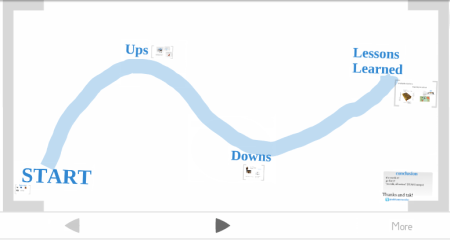This is not my return to blogging. There are around 10 drafts and 34 post ideas on various thoughts I gathered during my 4,5 years at Podio, and they shall be finished at some point in infinity.
Anyway, this post is about reading. More specifically, the way I read articles and shorter posts. Let’s call it semantic-reading in lack of a better word. Edit: a language nerd close to me, rightfully pointed out the completely wrong use of the word semantic reading in this context. So instead, let’s call it topical reading. Less sexy. Less wannabe intelligent.
In short: when reading multiple posts or articles that I saved via Pocket, I try to only read articles around the same topic instead of jumping between different topics. More joyful reading experience, better stored knowledge and easier to connect the dots.
I believe it helps me remember what I read to a much higher degree and in much more depth. How?
By now, we still don’t know shit about the intricacies of our brains but it seems quite certain that the more happily interconnected neurons are via synapses, the more likely we are to properly store and access our knowledge and memories.
My problem with reading both work-related articles and also those covering politics, economics, science, life, and other stuff that caught my attention, had always been the following:
First, I saved them to Instapaper which I’ve come to replace by Pocket over the last couple years.
Then, mostly on plane, bus or train trips, I looked at the long list of saved-for-later articles and wasted 10 minutes scrolling through, trying to decide what to spend my time reading on.
Then, I started reading an array of articles covering various topics. Jumping from a case study on great content seeding, to an article on why Keynesian deficit-spending is the salvation, to a post on how to be a great product manager.
After reading various posts on different topics, I’d usually feel exhausted, confused, and stressed. And I couldn’t remember a thing of what I had just read.
You guessed it, here comes topical-reading:
It’s still the same start: I save it to Pocket, after doing a quick scan of whether it’s worth saving or might just be consumed right-away or should just be closed and virtually thrown back at the writer. Most of the time, though, I save it for later because I can’t free myself of feeling guilty when reading at work, even when it’s work-related.
When on the plane, bus or train trip that I much looked forward to having dedicated reading time and catch up on all those exciting saved-for-later articles, the crucial change now is:
I make a quick decision on what topic I’m most in the mood for: politics? economics? product management? startup learnings? fascinating stuff about life?
And then I ONLY read posts and articles around that specific topic. Or at least a few, then take a break, then move on to the next topic if it’s a longer trip.
That way, I stay within the same context. Often, there are related thoughts or arguments. Or even better, opposing arguments! It might just be my imagination but I believe that my brain that way is better able to build those synapse connections and form clusters of related knowledge and thoughts. At least, I don’t feel stressed and depleted after reading anymore. Instead I feel inspired and satisfied.
Now, depending on the type and quality of posts you read that way you might still end up with cluster fuck in your brain but undo isn’t a feature of our brains. Is it?







